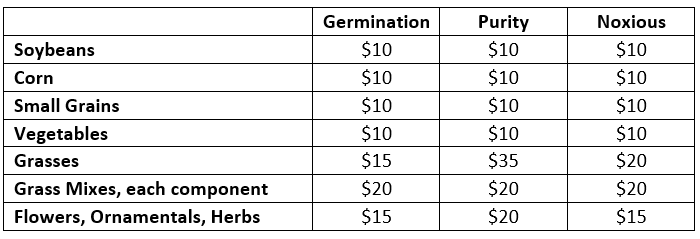DOVER, Del. (December 26, 2023)— Delaware’s agricultural industry looks forward to attending the annual Delaware Ag Week at the Delaware State Fairgrounds in Harrington from January 8 – 11, 2024.
“Ag Week is the largest venue where Delaware farmers, agribusinesses, and subject matter experts can network and learn about the latest innovations and research that will impact them in the upcoming growing season,” said Secretary of Agriculture Michael T. Scuse. “Nineteen years ago, the Department of Agriculture, University of Delaware, and Delaware State University Cooperative Extension developed Ag Week to help farmers get everything they needed in one spot so we could reduce the time they were away from the farm in the height of planting and harvesting, and it’s now a tradition everyone looks forward to attending.”
The four-day event offers many sessions featuring agronomy, animal science, beekeeping, fruits and vegetables, woodland management, and more. Attendees can earn continuing education credits for nutrient management, pest management, and Certified Crop Advising for Delaware and Maryland.
Those looking to attend the event can find the focus of each day, session topics, speakers, and locations online at https://sites.udel.edu/delawareagweek.
The information delivered is crucial to maintaining the success of the agriculture industry, which is the state’s top economic driver. According to the 2023 Feeding the Economy Report, agriculture employs 69,000 and provides nearly $10.3 billion in economic activity to Delaware. In addition, the state’s 2,300 family farms had $1.5 billion in direct sales to consumers.
According to Ag Week Chairman Cory Whaley with the University of Delaware Cooperative Extension, “Delaware Ag Week is a great time to get continuing education credits, soak up information, and catch up with friends and others in the ag community. Session organizers have done a tremendous job in putting together great programs that will provide relevant and timely information.”
While registration is not required for the overall event, specific sessions require pre-registration, as specified online, to ensure adequate preparation for the caterers.
This event is brought to you by the Delaware Department of Agriculture, the University of Delaware Cooperative Extension, and the Delaware State University Cooperative Extension. These organizations are equal opportunity providers. If you have special needs requiring accommodations, please get in touch two weeks before the event at 302-831-3328.
###
